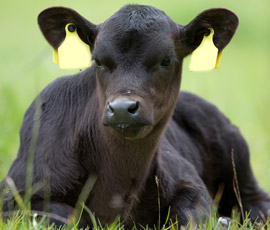Monthly ‘must do’s’: November 2012

1) Make the most of a new £1m animal welfare grant
More than £1m of new money is to be invested across the country in enhanced skills training on animal health and welfare through funding from Rural Development Programme for England and Wales.
The Agricultural Horticulture and Development Board (ADHB) has secured a £450,000 boost to its drive to develop skills in general animal health and welfare, with an additional £550,000 to further develop training and awareness in the fight to control endemic disease, with a special focus on bovine diarrhoea (BVD) and scab.
As project leader, AHDB will work with a contract team to train advisers, vets, trading standards officers, livestock auctioneers, feed and pharmaceutical representatives, as well as livestock farmers. The target is to improve the skills of 2,000 or more people in animal health and welfare for farm livestock and at least 8,000 on BVD and scab in the cattle and sheep industries.
Both programmes will begin in November and will run until March 2014.
Experienced technical experts from AHDB’s livestock divisions – covering cattle and sheep, dairy herds and pigs – will team up with animal specialists at ADAS and XLVets to deliver the training events.
Find out more at www.dairyco.org.uk
2) Check ear-tag numbers
Northern Irish producers and market operators have been reminded to check ear tag numbers carefully when moving cattle or face financial penalties.
Department of Agriculture and Rural Development (DARD) said market operators must check cattle ear-tag numbers against the tag numbers recorded on the movement documents before entering the information onto the market computer system and then uploading it to Animal and Public Health Information System.
Care should also be taken to ensure the correct tag numbers are moved from the seller’s herds into the market and then into the correct buyer’s herds.
Herd keepers must not confirm having received animals into their herd before checking the complete ear-tag number against the one recorded on the movement document.
Incorrect confirmation of cattle movements into a herd could be viewed as a cross compliance breach and result in a financial penalty being applied to the keeper’s single farm payment.
Any queries regarding movement of cattle should be made to your DARD regional office. For further information, see the DARD website at www.dardni.gov.uk.
3) Pig unit checks
Now that it is autumn, pig unit managers must look to ensure buildings are in the correct condition for the winter ahead.
Richard Bows, BPEX knowledge transfer manager, says: “Make sure pipes are lagged, ventilation systems are working, that automatically controlled natural ventilation curtains are functioning and flaps are in the correct position and that there are no draughts.”
He warns that the risk of post-weaning multisystemic wasting syndrome can increase with temperature fluctuations and restricted air flow.
4) Put vermin controls in place
Vermin on farm are a problem on many fronts, not only posing a health risk both to people and livestock, but also destroying fixtures and fittings and eating a significant quantity of feed.
An effective vermin control plan is therefore essential advises Paul Thompson, veterinary consultant to pig-breeding company ACMC.
He points out that, to really work, a thorough understanding of rat and mouse behaviour is necessary to set baiting points effectively. On many farms apparent bait resistance can be linked to bait positioning or palatability. Bringing in professional assistance at least to help draw up a control plan is well worthwhile.
View a video on rat control strategies
5) Low-cost ways to stop disease
There is a lot that can be done at a low cost to reduce the impact of subclinical disease on growth rates, says Charlotte West, BPEX knowledge transfer manager:
“Monitoring water consumption, using simple health scores like recording the amount of coughing and weighing pigs regularly can all identify trends.
“Weighing pigs is worth the time as it targets where to make changes which can, ultimately, mean less overall effort for greater results. “
Visit www.bpex.org.uk/2TS/events/default.aspx for more from the 2TS Focus on Finishing conferences.
See our previous Monthly Must Do’s.
MMD
